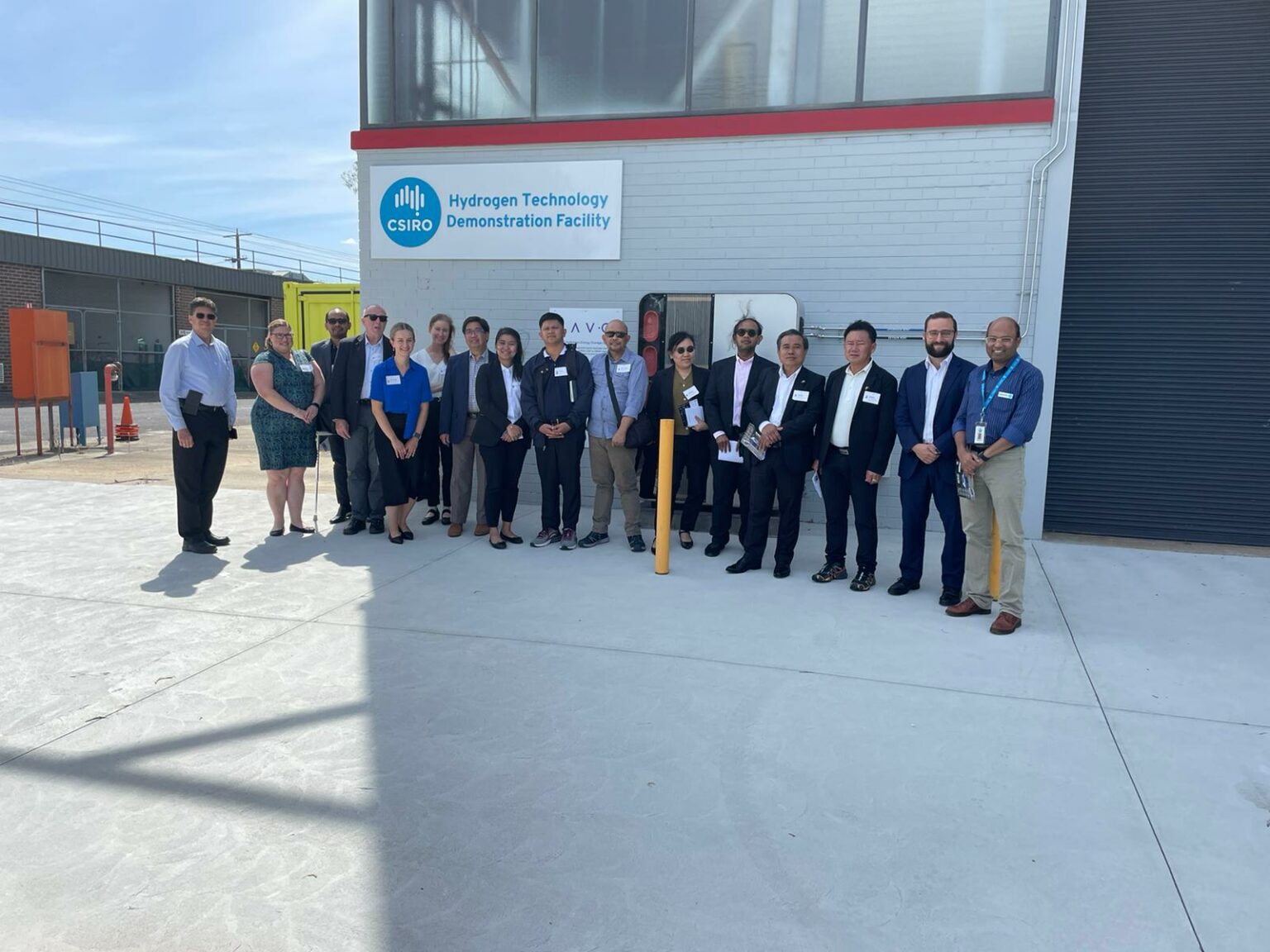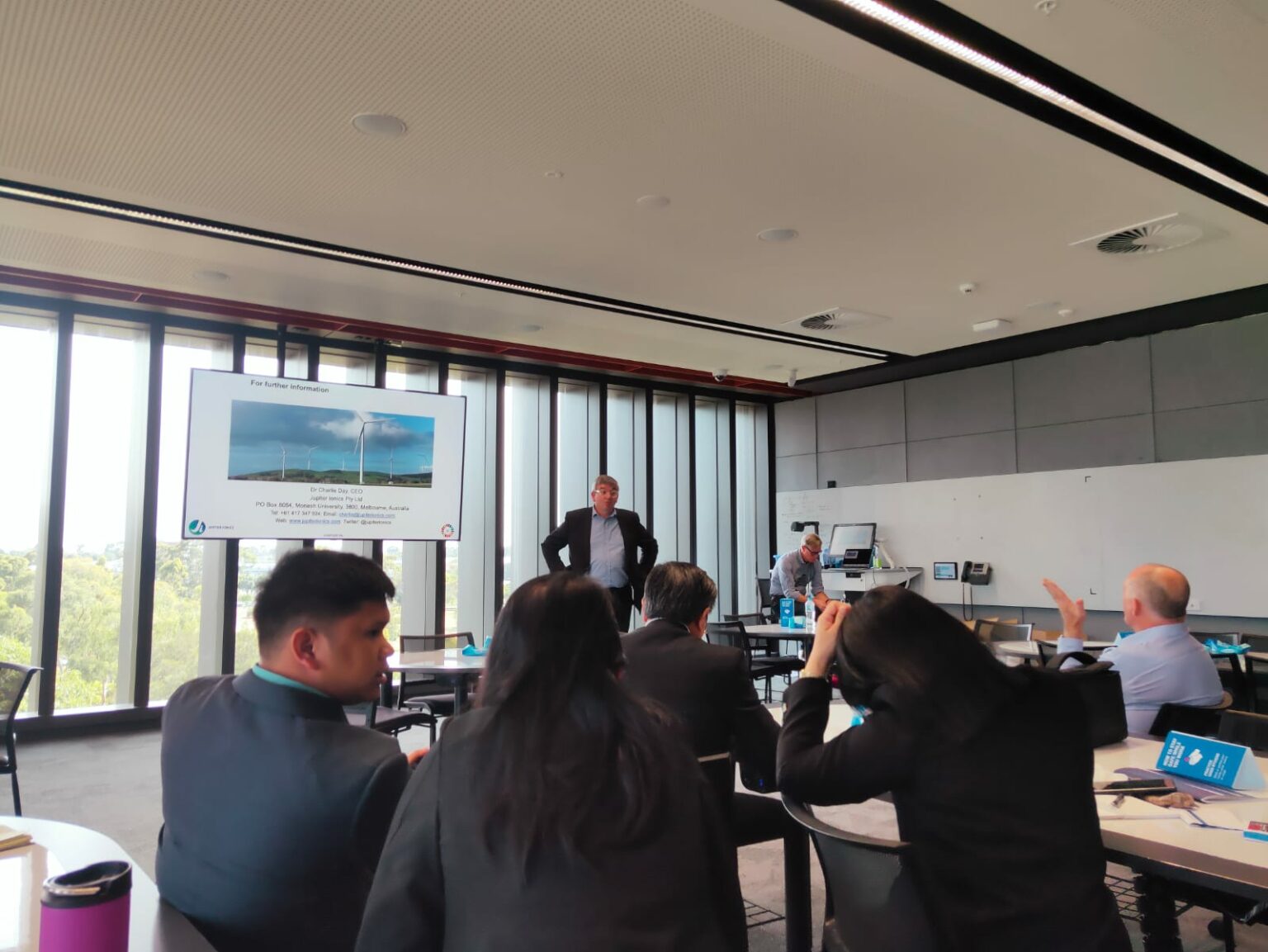Melbourne, 15 – 16 February 2023
Two ASEAN Climate Change and Energy Project phase II (ACCEPT II) delegates Beni Suryadi and Muhammad Shidiq visited Melbourne on 15-16 February 2023 to share experience on hydrogen with representatives from Commonwealth Scientific and Industrial Research Organization (CSIRO), Monash University and Jupiter Ionics.
A group of delegates from Philippines, Lao PDR and ASEAN Climate Change and Energy Project Phase II (ACCEPT II) have visited Commonwealth Scientific and Industrial Research Organization (CSIRO), Monash University and Jupiter Ionics to share experience on hydrogen research. The meeting has been facilitated by Partnership for Infrastructure (P4I) which is an Australian Government program with several countries across Southeast Asia and ASEAN to build stronger infrastructure collaboration between the countries including energy infrastructure.
During the time at CSIRO, Dr. Nawshed explained the CSIRO research on hydrogen namely Hydrogen Technology Demonstration Facility as well as the National Hydrogen Roadmap published by CSIRO. The Hydrogen Technology Demonstration Facility has been launched in May 2021 where it focused on leveraging CSIRO’s hydrogen research capabilities in partnership with government, industry and the research community. The facility is jointly collaborated with Swinburne University of Technology and the Victorian Government. The facility acts primarily as a refueling station for hydrogen vehicles and to test the technologies associated with hydrogen fueling. The facility also houses hydrogen production and storage facilities. A site visit to CSIRO’s laboratories on hydrogen research production has been shown to delegates. Next, Dr. Nawshed has also brought the delegates to show the refueling station as well as the plan of refueling station site at CSIRO Clayton where the site is planned to have across the hydrogen production value chain including production, separation, purification, storage, and transport, dispensing, and utilization.

ACCEPT II team during the time at Commonwealth Scientific and Industrial Research Organization (CSIRO).
Dr. Roger Dargaville has welcomed the delegates to Monash University where he has also introduced the current energy research activities within Monash Energy Institute. The current energy research among others may include enhancing stability of utility-scale renewable energy farms in weak grid where the study aims to explore issues and strategies associated with connecting renewable energy technologies into weaker parts of the National Electricity Market (NEM). Other study is about renewable electricity export from Australia to Indonesia where the study wanted to explore the possibility of electricity export to Indonesia from Australia by considering High Voltage Direct Current (HVDC) as a mature technology and transmit gigawatts at megavolts over thousands of kilometers.

Presentation from Dr Roger and Charlie during the visit at Monash University.
CEO of Jupiter Ionics, Charlie Day, has met and discussed with the delegates about the technology company where it focuses on electrochemical technology to produce green ammonia from green hydrogen as main component. The Jupiter Ionics was founded by Professor Douglas MacFarlane to commercialize the hydrogen research outcome of many years of research. Charlie explained that Jupiter Ionics has developed a breakthrough electrolytic cell to produce ammonia directly from hydrogen cracking. In addition, the company has created a scalable modular technology to produce carbon-neutral ammonia for fertilizer.
The time in Melbourne was very insightful and fruitful for the delegates to learn and connect with Australian institution working on hydrogen topic. It hopes that the connection for further exploring any collaboration in future between the Australia and the Southeast Asia countries in particular Philippines, Lao and Thailand on hydrogen energy is expected to happen.
This visit is part of Australian Hydrogen Study Tour where the delegates have come also to Canberra and Melbourne.
Reportage on the Canberra visit can be accessed here
Reportage on the Brisbane visit can be accessed here
For current hydrogen study that ACCEPT has been published can be downloaded here.
ACCEPT II welcomes for collaboration, please feel free to contact ACCEPT II at [email protected]